
The Order of Saint Andrew the Apostle the First-Called is the highest order conferred by both the Russian Imperial Family and by the Russian Federation . Established as the first and highest order of chivalry of the Russian Tsardom and the Russian Empire in 1698, it was removed from the honours system under the USSR before being re-established as the top Russian civil and military order in 1998.
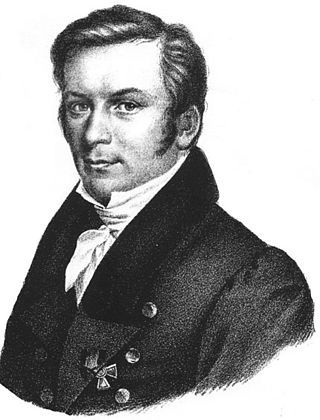
Johann Friedrich Gustav von Eschscholtz was a Baltic German physician, naturalist, and entomologist. He was one of the earliest scientific explorers of the Pacific region, making significant collections of flora and fauna in Alaska, California, and Hawaii.

Baron Ferdinand Friedrich Georg Ludwig von Wrangel was a Russia German explorer and officer in the Imperial Russian Navy, Honorable Member of the Saint Petersburg Academy of Sciences, and a founder of the Russian Geographic Society. He is best known as the chief manager of the Russian-American Company and governor of the Russian settlements in present-day Alaska.
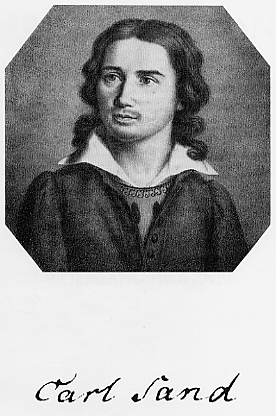
Karl Ludwig Sand was a German university student and member of a liberal Burschenschaft. He was executed in 1820 for the murder of the conservative dramatist August von Kotzebue the previous year in Mannheim. As a result of his execution, Sand became a martyr in the eyes of many German nationalists seeking the creation of a united German national state.

Friedrich-Werner Erdmann Matthias Johann Bernhard Erich Graf von der Schulenburg was a German diplomat who served as the last German ambassador to the Soviet Union before Operation Barbarossa, the German attack on the Soviet Union in 1941, during World War II. He began his diplomatic career before World War I, serving as consul and ambassador in several countries.
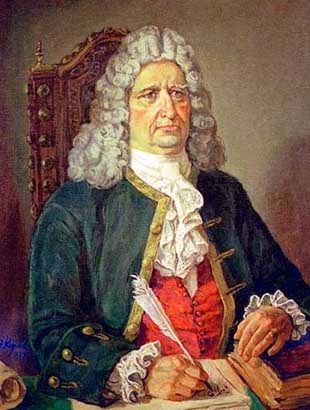
Gerhard Friedrich Müller was a Russian–German historian and pioneer ethnologist.

Prince Dmitry Vladimirovich Golitsyn was an Imperial Russian cavalry general prominent during the Napoleonic Wars, statesman and military writer.
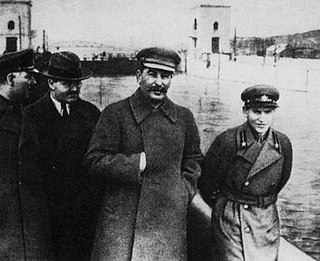
Censorship of images was widespread in the Soviet Union. Visual censorship was exploited in a political context, particularly during the political purges of Joseph Stalin, where the Soviet government attempted to erase some of the purged figures from Soviet history, and took measures which included altering images and destroying film. The USSR curtailed access to pornography, which was specifically prohibited by Soviet law.

Friedrich Huldreich Erismann, or Fyodor Fyodorovich Erismann was a Swiss ophthalmologist and hygienist.

Mikhail Tugan-Baranovsky was a Russian and Ukrainian Marxist, economist, and politician.
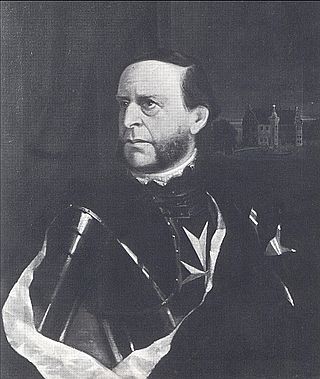
August Franz Ludwig Maria, Baron von Haxthausen-Abbenburg was a German agricultural scientist, economist, lawyer, writer, and collector of folk songs, best known for his account of conditions in Russia as revealed by his 1843 visit.
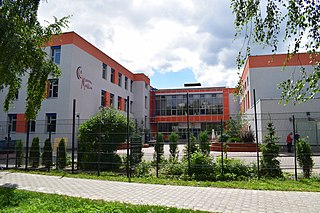
The German School Moscow "Friedrich-Joseph Haass" is a German-language private school in Troparyovo-Nikulino District, Western Administrative Okrug, Moscow, Russia. The German Foreign Office and the Central Agency for German Schools Abroad support the school.

Lev Lvovich Kobylinsky was a poet, translator, theorist of symbolism, the Christian philosopher and historian of literature. His pseudonym was Ellis.
Haass or Haaß is a German surname. Notable people with the surname include:

Karl Bernhard Woldemar Ferdinand von Ditmar was a Baltic German geologist and explorer, who travelled in and contributed to the scientific understanding of Kamchatka.

Thomas Roth is a German news anchor presenter and television presenter.

Dr. Haass Social Assistance Fund is the first non-profitable non-governmental charitable organization (NPO) in the Soviet Union, founded on November 26, 1987, in Odessa (USSR). It is named after a famous Russian philanthropist, "Saint Doctor", Friedrich Joseph Haass (1780–1853).

Tamara Tarasenko professor, philosopher, the first Chairman of the Board of Dr. Haass Social Assistance Fund (1987).

Alois Mertes was a German diplomat, politician and Minister of State at the Foreign Office from 1982 until his death. He was a member of the Christian Democratic Union (CDU) from 1961 until his death.

Alexander Friedrich von Bock, russified as Aleksandr Romanovich von Bok was a Baltic German sculptor and art professor.




















